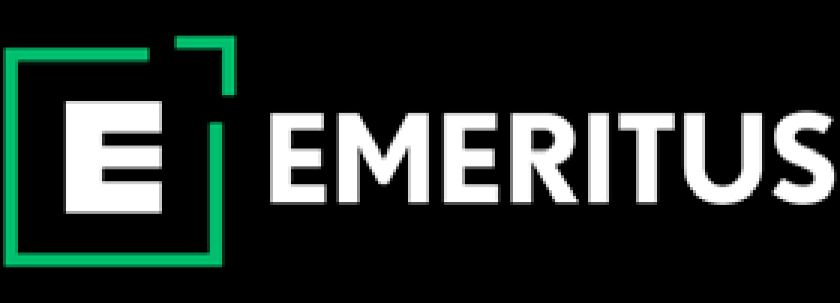What Does a HR Manager Do: Roles and Responsibilities of a HR Manager

There is a common notion that HR managers’ roles and responsibilities are limited to recruitment and employee management. However, in this complex business environment, an HR professional’s roles and responsibilities often go beyond than perceived, and HR managers are no different. They are not just the hiring process or employment management spearheaders; they are change bearers who create a work environment where everyone grows personally and professionally.
With changing responsibilities of HR managers, the answer to what is human resource management is also evolving. Today, human resource management also includes growth strategies, safe work environment strategies, and training and development programmes for the workforce. And HR managers play an essential role in ensuring everything works as planned. So, what exactly does a human resource manager do? Continue reading to find out.
What Does a Human Resource Manager Do?
Human resource management is an organizational function that focuses on increasing productivity among employees of an organization. It was perceived as just a recruitment process back in the day; however, eventually, the role of human resource management has evolved rapidly. Today, HR professionals are the link between an employee and the organization. They work towards aligning the perspectives and goals of both employees and the organization.
Human resource managers are an integral part of the HR department and perform an array of responsibilities. Here are some roles and responsibilities of an HR manager:
1. Planning community events and company gatherings to encourage team building and evoke a sense of unity among the employees of an organization.
2. Develop innovative performance measurement systems that encourage creativity and increase productivity.
3. Produce employee handbooks and educational materials to inform employees about the company processes and regulations.
4. Implement employee engagement practices to boost the morale of the workforce and motivate them to give their best.
5. Conduct survey, collate data, and draw inferences from all employees about the company’s managerial process.
Though the duties of an HR manager change from organization to organization, all HR managers largely perform the above-mentioned roles and responsibilities. There are many job titles associated with the HR department but what sets HR managers apart from the rest is the functions they perform. Below are some functions of a HR manager that are peculiar to them.
Human Resources Courses
What Are the Functions of An HR Manager?
HR managers perform various functions for the proper functioning of an organization. In the following section, we’ll be discussing the operative and managerial functions of an HR manager.
Operative Functions of an HR Manager
Operative functions are those tasks that ensure the smooth functioning of the business. These include employment, development, compensation, and workforce motivation, among others. Here are some details of the operative functions of an HR manager.
1. Recruitment
The workforce is an important resource for any organization. HR managers are responsible for managing and recruiting the workforce. They estimate the manpower requirement of the company and develop different strategies to recruit the best talent for different roles. HR managers also ensure that the right number of people are recruited to fulfill the company’s business objectives.
2. Development
HR managers create various training and development programmes to help new recruits adjust to the company’s environment. They also conduct refresher training programmes that educate employees about the organization’s history, mission, vision, and objectives.
3. Working Conditions and Welfare
HR managers make time-to-time changes in the organization’s work culture to suit the needs and want of the employees. They also ensure that the employees are facilitated with excellent working conditions and welfare programmes in the workplace in the form of good maintenance of workplace grievance and harassment cells.
4. Record Keeping
HR managers are the unofficial bookkeepers of the organization. They record all details related to the different personnel working across various departments. This activity comes to fruition during appraisals and recruitment.
5. Compensation
HR managers are responsible for formulating compensation schemes for new recruits. When deciding the compensation, a manager should consider the job title and quality of work of different employees.
Managerial Functions of An HR Manager
1. Planning
The most important function of an HR manager is planning for different things – from the recruitment process to training and development programmes. Planning also acts as a foundation for other functions of an HR manager, such as hiring needs of the organization, planning job requirements, etc.
2. Organizing
After completing the planning process (mentioned above), an HR manager must undertake this function. It requires them to develop plans and programs to achieve the business goals and satiate the needs and desires of the employees.
3. Directing
HR managers require manpower to implement the plans and objectives they create. So, they direct employees in the direction that fulfills the plans and objectives set by the manager. They delegate work among the team and monitor their performance to track their progress.
4. Controlling
It is one of the most important managerial roles and responsibilities of an HR manager. In this, the HR manager observes and compares the results with the goals, and corrects and regulates deviations. This involves activities like appraisals, audits, etc.
Importance of an HR Manager
HR managers are the bridge between employees’ performance and the company’s strategic objectives. Therefore, they are an inevitable part of the organization. Here are some reasons why HR managers are an integral part of the organization.
1. Strategic management
HR managers formulate and manage different strategies to ensure that the organization achieves its business goals quickly and efficiently, proving to be one of the most crucial roles and responsibilities of an HR manager.
2. Reduce cost
HR managers play an important role in reducing the operational cost of the business. For instance, they frequently motivate employees, leading to fewer demissions, and helping in reducing additional costs for training new employees. They also carry out efficient negotiations with existing and new employees to attract new employees and retain the existing workforce.
3. Training and development
HR managers conduct different training and development programmes to upskill employees and help them reach the best of their capabilities. These training and development programmes are effective and lead to employees’ professional growth, hence enhancing employee satisfaction and productivity.
4. Conflict management
An HR manager is a go-to person to resolve conflicts in the business environment. They deploy their skills and find a solution to the issue. HR managers also ensure that conflicts and differences are solved effectively and amicably. This is what an experienced human resource manager does.
5. Work culture management
A healthy work culture germs creative and motivated employees, and HR managers ensure the same—they set up a healthy and friendly work culture that transcends efficiency and productivity.
10 Skills of an HR Manager
HR is a business function bustling with many employment opportunities, and if you want to become an HR manager in the foreseeable future, then here are some skills an HR manager should ideally possess, and you will need to hone to excel in the job:
1. Recruitment and hiring
2. HRIS expertise
3. Analytical skills
4. Teamwork
5. Advising skills
6. Administration
7. Communication
8. Coaching
9. Time management
10. Leadership qualities
Human Resource Management Certification Courses
Certification courses are your getaway to better job opportunities. These short-term courses add value to your resume and equip you with HR leaders’ skills.
Emeritus India offers some of the best human resource management certification courses for working professionals. We have partnered with various premier institutes to provide certification courses that add value to your resume and help you attain an enviable job position and a fat paycheck. So, if you are an aspiring HR professional, enrol yourself in Emeritus’s certification programmes to skyrocket your career in human resource management.






